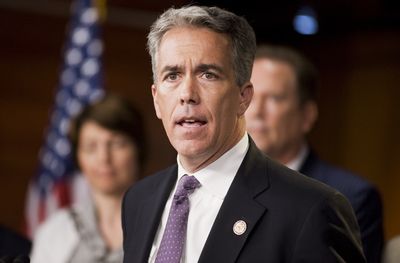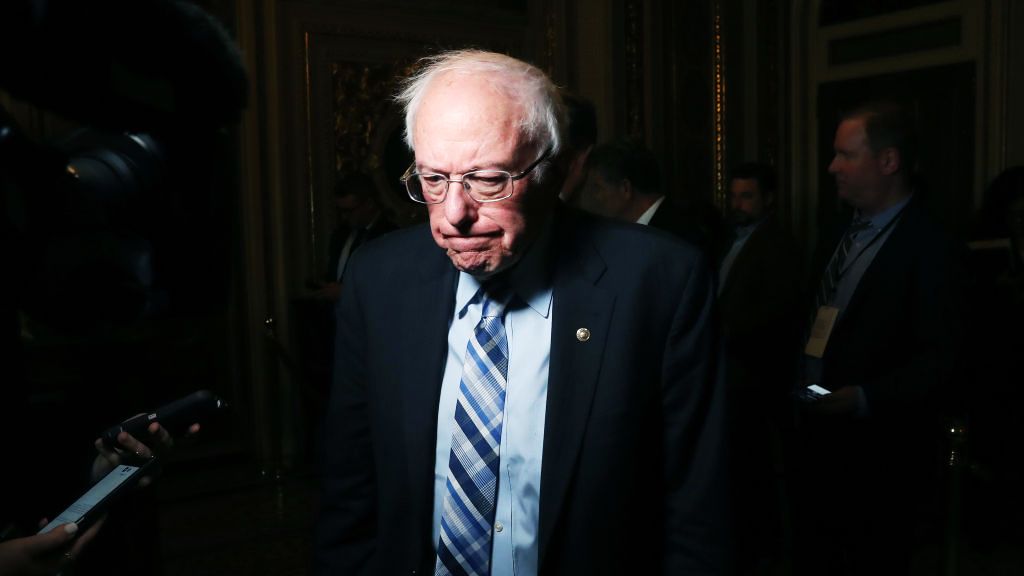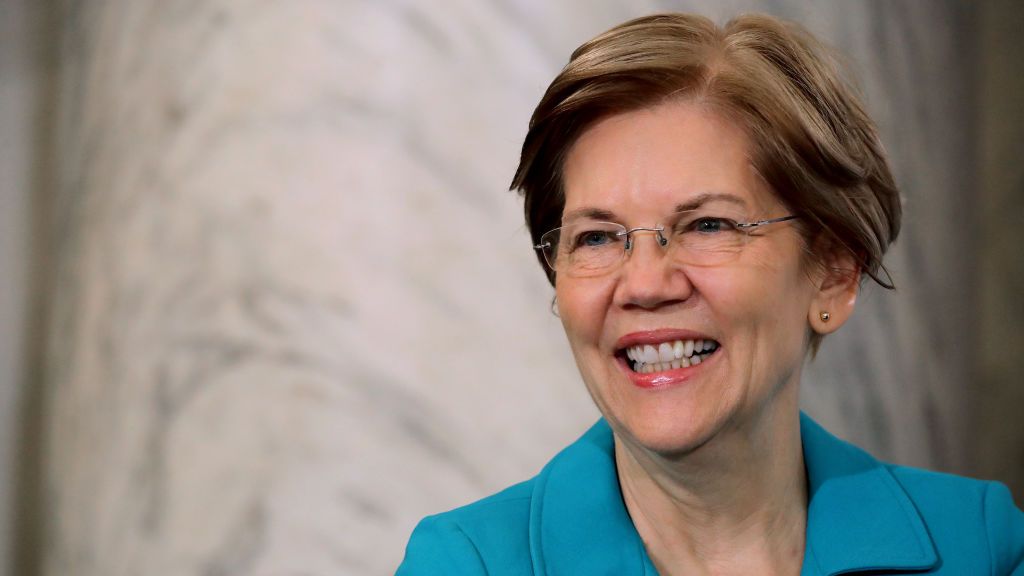Are Any Republicans Running Against Trump In 2020?
Much of the 2020 presidential election coverage has focused on the Democratic candidates. But what of the other Republican candidates eyeing a run in 2020?


Much of the 2020 presidential election coverage thus far has focused on the many, many Democratic candidates aiming to challenge incumbent President Donald Trump. But what about the other Republicans running for president in 2020? Let's take a look at the Republican landscape and the potential challengers to Trump.
Update, 2/25/20:
As of this moment, there's only one Republican challenger to Trump—William Weld, Governor of Massachusetts in the 1990s and former federal prosecutor. He's always been strongly anti-Trump since the 2016 election, in which he ran for VP as a Libertarian with Gary Johnson as the presidential candidate. Weld is obviously still considered a long shot (more on that below), but he's still speaking out. "Part of the reason I’m running is that I do want to have compliance with the constitution and the rule of law, which I think has been left on the scrap heap in the last three years," he explained.
Conservative radio show host Joe Walsh dropped out in early February 2020 after the Iowa primary. "I got into this because I thought it was really important that there was a Republican—a Republican—out there every day calling out this president for how unfit he is," he said.
Mark Sanford ended his campaign in November 2019, citing the impeachment trial as the reason why. He said, "We wanted to try and interject this issue, how much we’re spending, into the national debate, which comes along once every four years," but that there was no "appetite for a serious nuanced debate with impeachment in the air."
Original story, 9/12/19:
So far, there are three official Republican challengers, and one was just announced a few days ago: Mark Sanford. In case that name sounds familiar to you, yes, that's the former Governor of South Carolina and formerly U.S. Representative for the state's first congressional district; He's also the guy who went missing for a few days and then had to admit he was visiting his mistress in Argentina, leading to a divorce with his then-wife. He actually served in Congress from 2013 to 2019 after the scandal, so it apparently didn't do long-lasting harm to his political career.
Get exclusive access to fashion and beauty trends, hot-off-the-press celebrity news, and more.
According to the New York Times, Sanford's platform is probably a lot more nuanced than the other two candidates, who are pretty clearly "Never Trump" and simply trying to provide an alternative for anyone in the Republican party who doesn't want to support the incumbent. "Instead, his candidacy is likely to be dedicated to the issues that have motivated and impassioned him for years — particularly issues related to fiscal restraint and responsibility...Indeed, on some issues he will probably agree with [Trump], and not in a tokenist way."
Thus far, Sanford has made a point to bring up the current national debt, which he says may lead to a financial crisis and has been getting worse in the past four years. Like the other candidates, he likely doesn't have a chance of winning, but he stands a good shot of drawing voters and bringing up issues that otherwise wouldn't be addressed in the 2020 election.
The second candidate who just announced he's running is Joe Walsh, a tea party Republican who moonlights as a conservative radio host and served one term in the House of Representatives, representing Illinois' 8th District. Critics of Trump hope Walsh will serve to weaken his 2020 run.

Walsh was initially a Trump supporter, but quickly switched course. He's been talking about a run, but hasn't confirmed. "If I do it, it’s going to be before Labor Day," he's said. His breaking point for Trump was the latter's recent meeting with Putin. "He lost me for good in Helsinki, when he stood in front of the world and said, ‘I believe Putin and I don’t believe my fellow Americans,’” he said. He explained that a Republican challenger like him would be necessary “to stick our necks out because when people see that, more and more people will.”
He doesn't stand a good chance of beating Trump, but critics are hoping that Walsh's charismatic and vocal style as a talk radio host will help convince people who are on the fence about the incumbent—even though such a run very likely won't beat him, regardless.
The final Republican challenger, William Weld, was Governor of Massachusetts from 1991 to 1997 and is aiming to bring "equality, dignity and opportunity for all" (principles of Abraham Lincoln) back to the Republican party. He's strongly anti-Trump, both in rhetoric and in action, asserting that the president should be charged for obstruction of justice. Interestingly, he's pro-choice, which is unusual for conservatives, but he's also pro-tax cuts and pro-small government. In 2016, he was on the Libertarian ticket as VP for Gary Johnson.
Weld has been making the rounds as a very long-shot candidate, continuing to criticize Trump and warning that the sitting president might not leave the White House voluntarily if he loses in 2020. Weld also says he's continuing his fight to keep the more old-school values of the Republican Party intact instead of the cult of personality that he sees in modern-day Republicanism. His candidacy hasn't gotten a ton of traction thus far.
There were two other politicians who are also considering a run, although both have now indicated that they won't be diving into the 2020 race. There was also one other potential candidate who briefly seemed like he was entertaining a 2020 bid—former Arizona Senator Jeff Flake, who served from 2013 to 2019—but he has since become a contributor for CNBC, so he's not running. He was and is also staunchly opposed to Trump.
Maryland Governor Larry Hogan, who just won re-election, is also anti-Trump, particularly over the Mueller report. As a moderate Republican, he's pro-tax cutes but also pro-climate change reform, LGBT rights, and gun control, amongst other things.
Hogan freely admitted to Politico, "I don’t see any path to winning a Republican primary against this president, or anybody doing it. But things have a way of changing." He added, "I don’t know what the lay of the land is going to look like this summer, or in the fall." He's also said that he's not going to run unless he sees a path to victory. On June 1, he made it official: No, he's not running.
John Kasich, former Ohio Governor from 2011 to 2019 and presidential candidate in 2016, was also mulling over a potential run. He's more conservative, favoring tax cuts and actually defunding Planned Parenthood in Ohio, but he has some moderate stances, like acknowledging climate change as a threat. He's also building a platform on fixing broken government and bringing civility back to politics.
A post shared by John Kasich (@johnkasich)
A photo posted by on
He, too, admitted to AP, "If you’re going to run as a Republican you have to have a sense that if you get into primaries you can win. Right now, probably couldn’t win," he said. "But that’s today. It’s ever changing." On May 30, he said, "There is no path right now for me. I don't see a way to get there...I've never gotten involved in a political race where I didn't think I could win." So he's out, as well.
Here's why more Republican challengers would matter to the race, courtesy of Fortune:
Presidents who face a reputable challenge in the primary frequently lose reelection, even after winning their party’s nomination; a divided party is less likely to turn out the votes needed. The last time this happened was in 1992, when President George H. W. Bush lost reelection to Bill Clinton after facing a far-right candidate in the primary.
So even though a Republican candidate may not prevail in the challenge, it could serve to weaken the sitting president's electability. However, considering how much of an impact Trump has had on the Republican party, particularly the far right, some pundits are speculating that primary challengers will have even less of an impact on his run than normal. This may also be why not many people are stepping up—they know they won't get much, if any traction. Not helping matters, per Fortune, is that "Trump’s 2020 campaign has merged with the Republican National Committee to become a joint fundraising committee called Trump Victory."
Trump, struggled to fundraise initially, according to Vanity Fair. "There’s Trump fatigue," said a prominent Republican donor. "The 2020 bumper sticker should be: 'Same Policies, but We Promise Less Crazy.'" But those numbers have increased.
Watch this space—we'll update the story as we know more.
For more stories like this, including celebrity news, beauty and fashion advice, savvy political commentary, and fascinating features, sign up for the Marie Claire newsletter.
RELATED STORIES



Katherine’s a contributing syndications editor at Marie Claire who covers fashion, culture, and lifestyle. In her role, she writes stories that are syndicated by MSN and other outlets. She’s been a full-time freelancer for over a decade and has had roles with Cosmopolitan (where she covered lifestyle, culture, and fashion SEO content) and Bustle (where she was their movies and culture writer). She has bylines in New York Times, Parents, InStyle, Refinery29, and elsewhere. Her work has also been syndicated by ELLE, Harper’s Bazaar, Seventeen, Good Housekeeping, and Women’s Health, among others. In addition to her stories reaching millions of readers, content she's written and edited has qualified for a Bell Ringer Award and received a Communicator Award.
Katherine has a BA in English and art history from the University of Notre Dame and an MA in art business from the Sotheby's Institute of Art (with a focus on marketing/communications). She covers a wide breadth of topics: she's written about how to find the very best petite jeans, how sustainable travel has found its footing on Instagram, and what it's like to be a professional advice-giver in the modern world. Her personal essays have run the gamut from learning to dress as a queer woman to navigating food allergies as a mom. She also has deep knowledge of SEO/EATT, affiliate revenue, commerce, and social media; she regularly edits the work of other writers. She speaks at writing-related events and podcasts about freelancing and journalism, mentors students and other new writers, and consults on coursework. Currently, Katherine lives in Boston with her husband and two kids, and you can follow her on Instagram. If you're wondering about her last name, it’s “I go to dinner,” not “Her huge ego,” but she responds to both.